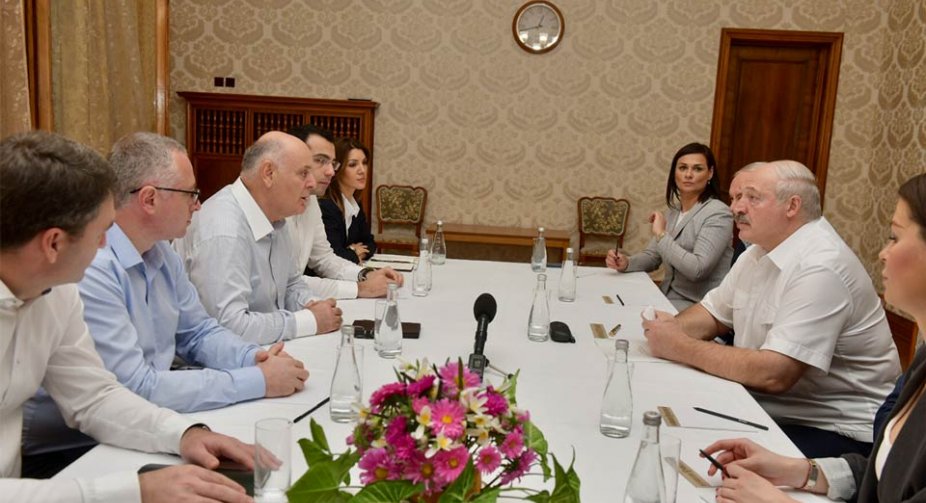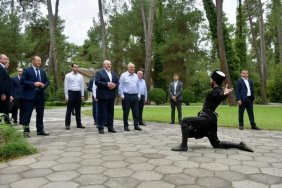Lukashenko’s visit to Abkhazia shows total disregard for UN charter and principles of Helsinki final act regarding respect for territorial integrity and sovereignty of Georgia”, Mark Clayton, the British Ambassador to Georgia said in response to wednesday’s visit of Belarus President Alexander Lukashenko in Georgia’s Russian-controlled Abkhazia region.
“The UK stands firm in its support for Georgia in the face of this further provocation”, the Ambassador added.
The US Department of State stressed that the country “|continue to strongly support Georgia and its territorial integrity within its internationally recognized borders, Russia is responsible for the commitments it made under the 2008 cease-fire”.
"Russia should withdraw its forces to pre-conflict positions and cancel the recognition of the Abkhazia and South Ossetia regions of Georgia. As you know, the Ministry of Foreign Affairs of Georgia issued a statement today condemning the visit of Alexander Lukashenko to Abkhazia", said Ned Price, the Department of State Spokesperson.
The Georgian Foreign Ministry said on Wednesday that it was “utterly concerned” by Lukashenko’s visit to the de facto region.
The ministry said that “as a sign of protest, the Ambassador of Belarus to Georgia, Anatoly Lis, was summoned for explanations.
The Georgian prime and foreign ministers also “strongly condemned” the visit.
“I strongly condemn Aleksandr Lukashenko’s “visit” to the Abkhazia region of Georgia occupied by Russia and meetings with the Russian occupation regime. This step violates Georgia’’s law on occupied territories and contradicts with int’l law as well as bilateral relations between our countries”, said PM Irakli Garibashvili.
Russia recognized two Georgian regions of Abkhazia and Tskhinvali as independent states after the Russia-Georgia 2008 war.
Since then only Venezuela, Nikaraua, Nauru and Syria have acted the same way, with Belarus refraining from taking the step.

